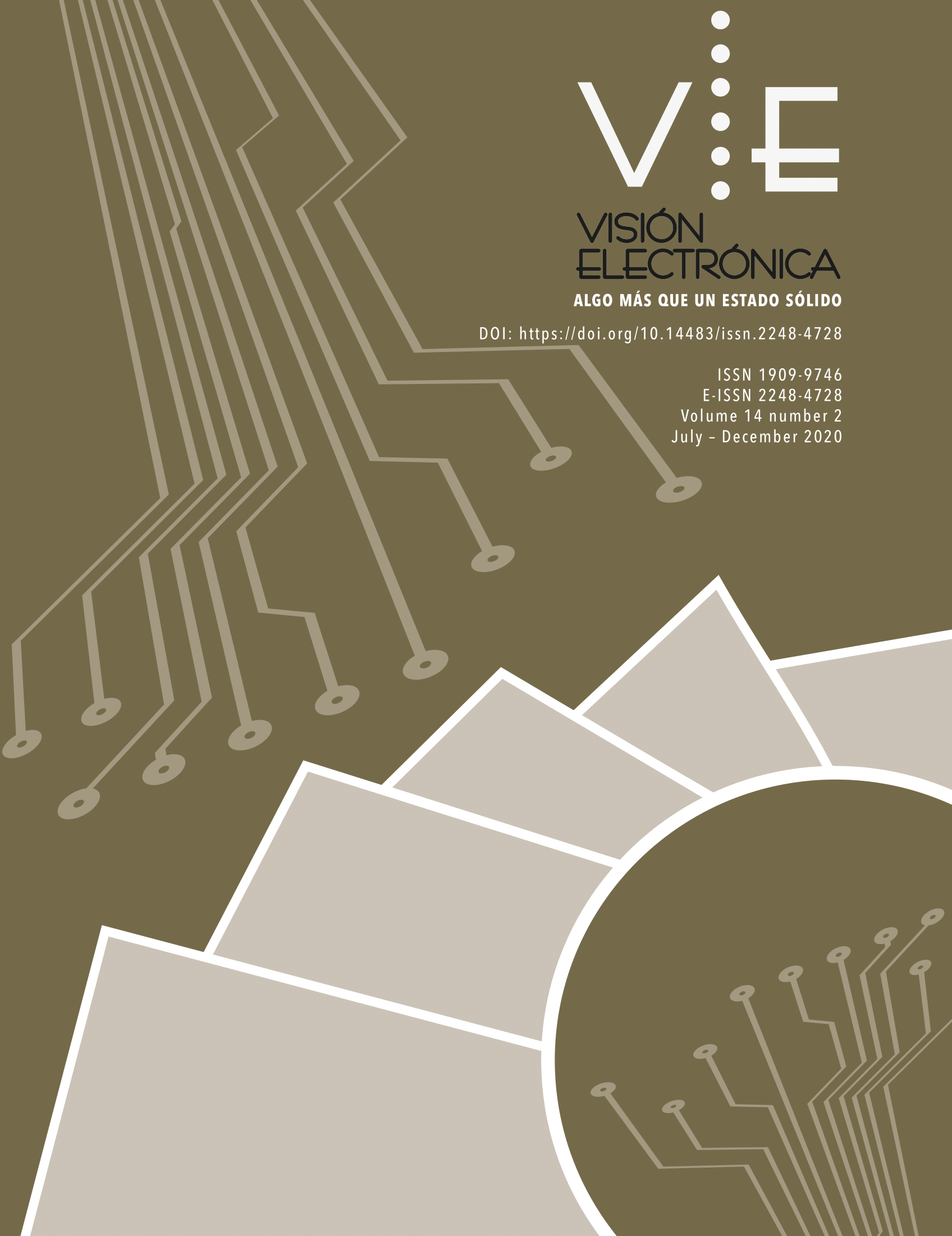DOI:
https://doi.org/10.14483/22484728.16178Publicado:
2020-07-31Número:
Vol. 14 Núm. 2 (2020)Sección:
Visión de CasoDesign and implementation of a fuzzy temperature control for a craft beer production microplant using PLC
Diseño e implementación de un control difuso de temperatura para microplanta de cocción de cerveza artesanal mediante PLC
Palabras clave:
Automatización, Cerveza artesanal, Control fuzzy, Interfaz, Temperatura (es).Palabras clave:
Automation, Craft beer, Fuzzy control, Interface, Temperature (en).Descargas
Resumen (en)
In this study, a fuzzy-based PLC temperature control system was designed and implemented on a craft beer production plant. At present, the temperature-related controls of small-scale plants in Colombia are based on On/Off models, which are not very stable in the preparation of craft beer, which generates significant changes in flavor, scent and texture. Therefore, it is intended to incorporate into the craft beer industry, solutions that guarantee repeatability, minimize costs and potentiate production, for this, a three-stage fuzzy control model is carried out: design, implementation and start up; This is how a study of the plant´s dynamics is carried out, the response is determined from the data, a fuzzy controller is designed by using Matlab software, and a graphical interface in LabView for data capture and storage. The controller demonstrates stability in relation to the temperature variable, which provides repeatability and significant energy savings.
Finally, it is concluded that the controller proved to be robust against major disturbances and stable at different temperatures, being a useful tool for efficiently controlling the variable.
Resumen (es)
En este estudio se diseñó e implementó un sistema de control difuso de temperatura basado en PLC sobre una planta de cocción de cerveza artesanal. En la actualidad los controles relacionados a temperatura de las plantas a baja escala en Colombia se basan en modelos On/Off, que son poco estables en la preparación de la cerveza artesanal, lo que genera modificaciones significativas en el sabor, el aroma y la textura. Por tanto, se pretende incorporar en la industria de cerveza artesanal, soluciones que garanticen repetibilidad, minimicen los costos y potencialicen la producción, para ello, se realiza un modelo de control difuso en tres etapas: diseño, implementación y puesta en marcha; se realiza un estudio de la dinámica de la planta. A partir de los datos se determina la respuesta, se diseña un controlador difuso mediante software Matlab, y una interfaz gráfica en LabView para captura y almacenamiento de datos. El controlador demostró estabilidad en relación a la variable, lo que proporciona repetibilidad y un ahorro energético significativo.
Finalmente se concluye que el controlador demostró ser robusto ante grandes perturbaciones y estable ante diferentes temperaturas siendo una herramienta útil para controlar de manera eficiente esta variable.
Referencias
P. P. Cruz, "Artificial intelligence with applications to engineering", 1st. México: Alfa Omega Group Editor, 2010.
M. Santos, "An applied approach to smart control", RIAI - Iberoamerican Journal of Automation and Industrial Computing, vol. 8, no. 4, pp. 283-296, 2011. https://doi.org/10.1016/j.riai.2011.09.016
S. Birle, M. A. Hussein and T. Becker, "Fuzzy logic control and soft sensing applications in food and beverage processes", Food Control, vol. 29, no. 1. pp. 254-269, 2013. https://doi.org/10.1016/j.foodcont.2012.06.011
N. Perrot, I. Loannou, I. Allais, C. Curt, J. Hossenlopp and G. Trystram, "Fuzzy concepts applied to food product quality control: A review", Fuzzy Sets and Systems, vol. 157, no. 9, pp. 1145-1154, 2006. https://doi.org/10.1016/j.fss.2005.12.013
X. Dingyu and C. Yangquan. "System Simulation Techniques with MATLAB and Simulink", Ed. Chichester, 2013.
Siemens, "Siemens supporting documentation to TIA portal and PLC S7-1200," Siemens, 2018. [Online]. Available at: https://www.siemens.com/global/en/home/products/automation/systems/industrial/plc/s7-1200.html
S. Birle, M. A. Hussein and T. Becker, “Fuzzy logic control and soft sensing applications in food and beverage processes”, Food Control, vol. 29, no. 1, pp. 254-269, 2013. https://doi.org/10.1016/j.foodcont.2012.06.011
R. B. Kuriakose, N. J. Luwes and H. J. Vermaak. "Designing a Temperature Control System for a Craft Beer Fermenter Unit Using Arduino Uno and Simulink- a Budding Entrepreneurs Perspective", Proceedings of 10th International Conference on Management, Finance and Entrepreneurship. (ICMFE-2016), pp. 96-103, 2016.
B. Connor, C. Riveron, P. Kellerher, N. Plant, R Bevan. B. Hinchy and J. D' Arcy, "Integration of fuzzy logic based control procedures in brewing”, Food control, vol. 13, no. 1, pp. 23-31, 2002. https://doi.org/10.1016/S0956-7135(01)00067-6
P. Babatunde. "Optimization of the Fermentation Process in a Brewery with a Fuzzy Logic Controller", Leonardo Journal of Sciences, no. 11, pp. 79-92, 2007.
M. Lees, R. Ellen and P. Brodie, "The control of beer production: Insights into the controller topology of a large Australian brewery", Australian Control Conference, Fremantle, pp. 336-341, 2013. https://doi.org/10.1109/AUCC.2013.6697295
M. Lees and L. Wang, "PID controller design for industrial beer filtration", 5th Australian Control Conference (AUCC), pp. 306-311, 2015.
D. Catalan. "Design of a semi-automated home brewing system", thesis, Escola Tècnica Superior d'enginyeria industrial de Barcelona, España, 2007.
J. J. Palacios Rozo, H. E. Palacio Velásquez, and R. González Silva, “Educación versus tecnología y su convergencia hacia la IA”, Rev. vínculos, vol. 15, no. 2, pp. 186-194, nov. 2018. https://doi.org/10.14483/2322939X.14114
Cómo citar
APA
ACM
ACS
ABNT
Chicago
Harvard
IEEE
MLA
Turabian
Vancouver
Descargar cita
Licencia

Esta obra está bajo una licencia internacional Creative Commons Atribución-NoComercial 4.0.
.png)
atribución- no comercial 4.0 International






.jpg)





